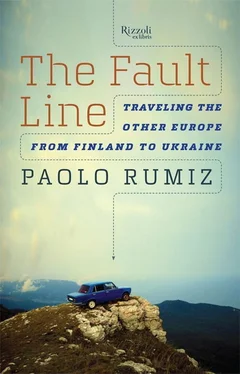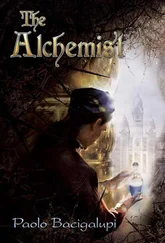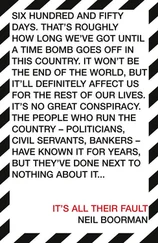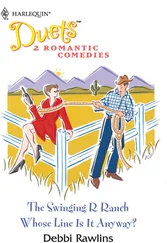Unyielding with chicken stealers, the border of the EU suddenly turns warmly welcoming for the brigands, bandits, and scoundrels of the globe-trotting elite.
That’s what I find in Warsaw, after the surreal adventure on the train from Kaliningrad, fleeced of its salamis and cigarettes by Polish customs. The city is crawling with tourists, and to find a room I’m forced to turn—against my principles—to a hotel for the rich on Grzybowska Street. I get off to a bad start.
Because of my backpack and long beard, they frisk me at the entrance, and only the sudden appearance of my credit card manages to force a smile from the mug of the bouncer who is patting my jacket and then saccharine welcomes in English from the people working the reception desk.
Then, taking the elevator up to my room, I happen to find myself next to two enormous Russian gorillas with shaved heads, impeccable gray suits, and spiral-wire earphones sticking out next to their jugular veins, blood-swollen like a turkey’s. Both are obviously packing heat, their jackets bulging with holstered guns. I can’t contain myself. I go back down to the reception desk without unpacking my bag and tell them I don’t want to stay in a hotel where they frisk ordinary customers but don’t frisk gangsters. I provide the embarrassed management with information on where they can find the two head-shaven monsters, but since nothing happens, I return my key and leave, not without declaiming, in a loud voice in the lobby, my sacrosanct reasons for doing so.
But Western Europe immediately bids me welcome with still other unpleasant episodes. The pack on my aging back becomes the object of thinly veiled commiseration, and interpersonal communication on public transport diminishes sensibly, while the incidence of indifference and boredom soars. But above all, time. It is consumed with the anguishing velocity of a candle. I have a vaguely fixed appointment with a Greek Catholic priest outside of Warsaw, who is very familiar with the Kaliningrad border, a priest who organizes folk festivals and trains combat dogs. But when I phone him to say I’m on my way, the reverend responds icily that I was supposed to confirm the appointment earlier and he won’t be able to see me. “I’m sorry,” he tells me, “but I haven’t got time.” And he adds, with a touch of venom, “Since we’ve joined the European Union, there’s no time anymore.”
The city I have loved and visited many times suddenly seems to have been sucked into the void. Bermuda shorts, ice cream cones, rude tourists, a square invaded by multicolored papier-mâché bears on their hind legs with their forelegs raised in the air like fools. The analgesic illusionism of the West appears to me in all of its dementia. After just one day, I’m exhausted. Where is it written that traveling is wearisome? Three hours in an overheated Internet café tire me out more than the five Russian trains I had to ride to circumnavigate Lake Ladoga.
Even Monika, who is at home here, is in a state of crisis after three successive lines at the Belarus Embassy to request a visa. Maybe the unfriendly priest is right: in the countries of the EU, time is consumed in senseless acts. Beyond the frontier, there may be Europe’s last Communist dictatorship and its toughest police, but that doesn’t matter to us. We want to return to the East. Our biorhythms have changed.
But then old Warsaw redeems itself. The bookstores are better stocked and more crowded than in my illiterate Italy, where they’ve been ruined by television and mobile phones. At a book sale in the Rynek, the market square, there is a line thirty yards long outside the door, as at a film premier. The theater marquees are more interesting than those in Rome. And my spirits are also raised by the map store in John Paul II Street, where the best show of all, as Ryszard Kapuścińsky told me one day when we went in there to get out of the snow, is seeing “the people hungry for the world,” browsing the shelves. The great Polish journalist was to die two years later, and I had the sensation then that he was like a nomad shut into a space that was too small for him.
His life, too, I must confess, was consumed in repetitive acts, which clipped his traveler’s wings. He was restless, seemed to be chasing after something in a blizzard. “Time,” he would say, “I need more time, and time is a luxury for me.
They besiege me: honorary degrees, lectures, letters, prefaces. Ah, how happy I was when nobody knew me!” The memory of that phrase has never left me, and now it surfaces again, clear as a bell, in the heart of this journey where the return to the West signals a speedup like the ones in silent movies. Kapuścińsky said, “How wonderful it was way back when. All I had to do was get on a train, listen, and take notes. I enjoyed anonymity, which is the basic requirement for a reporter. Today that’s all over. If I could at least write about Poland, but by now they know me too well. As soon as I enter a town, out pops the mayor, then the bishop invites me to lunch, and I’ve already stopped working.”
His notebooks had filled up with stories of the pueblos of Central America, of aurorae boreales and monsoon rains, but after all that traveling, his pen couldn’t manage to stop anything anymore. I now had the same impression: Warsaw was already a different place compared to two years ago, and what I had written then was already archaeology. Kapuścińsky said: “If I return to Latin America or India, I can’t recognize places I’ve only just been to. It’s devastating. Every second gets consumed as though it were the last, and then news inflation hits and we’re totally disoriented.” He was starved for slowness and simplicity, for old hotels, for shoes to dirty. He didn’t use taxis but streetcars, shuffled along in the slush toward food stands to buy beets and cabbages, noted like a foxhound every detail of store windows, grumbled about multinational hotel chains that were “too expensive.” I once saw him help an old woman who had slipped in the slush, until an impetuous snowplow passing through a puddle soaked us both to the bone in Grzybowska Street.
In the evening, we go to the house of Jacek Kopciński, a friend of Monika’s, to pick up my old car with the intention of going as far as Odessa on four wheels. We had discussed it for what seemed like an eternity, and in the end we decided that traveling by car in Belarus and Ukraine was the only way to get deep into the lives of those two countries. After all those trains, stations, waits in the wind, I discover myself dreaming of my old compact, and the idea of unloading my backpack after three weeks as a globe-trotter seems like an incredible luxury.
We’ve got everything we need: insurance, international driver’s license, visa. Even a small supply of Italian food to use in what we fear will be the Lenten fast of Belarus. Thus outfitted, for a moment it seems that the journey to the Black Sea is going to be a breeze.
But the unpredictable happens. When Monika’s friend takes us to the car parked in his yard, the journey by car suddenly appears to us to be perfectly insane. The trunk and the backseat are crammed with stuff that three weeks ago I had judged indispensable and today seems the fruit of some delirium, aside from being utterly superfluous: books I would never have the time to read, an Italian espresso maker that I would never use, clothes that I would never want to wash or even wear. Even two pillows, in case we ended up sleeping in the car. Away, away with it all; traveling light has changed us. Kapuścińsky is right. We can’t turn back the clock; we have to win back our time. And so, in front of a bowl of beet soup, we formalize our change of plan by giving the car keys back to our stupefied friend.
Jacek is beside himself. “The journey takes care of itself,” we have told him, to justify our change of plan, and now he wants to enter into our philosophy. He asks, “What is it that moves you to go? Empathy? Compassion? Images that have attracted your attention?” He forces himself to rationalize an instinct, dooming himself to be wrong from the outset. “I don’t even know myself what makes me go,” I tell him. “All I know is that when the season changes, I have to go. I clean my flight feathers like a bird preparing for the big move. It’s a thing that ornithologists know well: it’s called migratory restlessness.” We put down in black and white a few basic equations of travel. For example, less weight equals more encounters. Pace equals metrics equals story. And above all: the greater the difficulty, the more stories to tell. And who cares if we end up trying to hitch a ride in the middle of the Carpathians? We’ll have more things to remember.
Читать дальше












